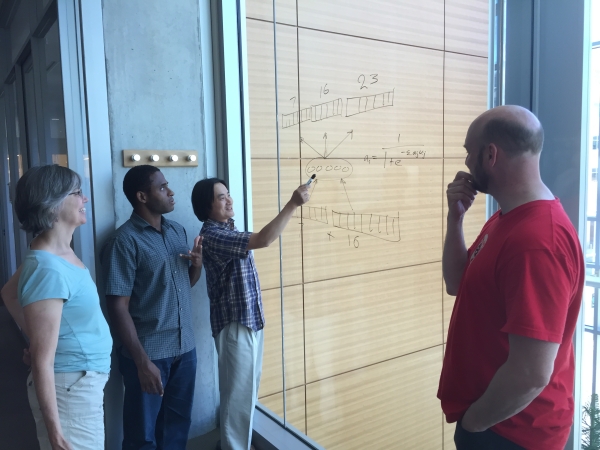InsideHigherEd: Imagine if schoolteachers and college professors were immediately able to identify how each of their students learns, what learning style works best for each child and what new topics he or she is struggling with.
Research faculty members at the University of Wisconsin at Madison are hoping that this can be the future of education. Their research uses a combination of psychology and computer science to determine how best to optimize teaching for individual students. This means teachers and professors will be able to immediately know what subjects students are struggling with and be able to address those needs, instead of teaching an entire class of students with ranging difficulties.

3 comments:
This is such a weird concept, I don’t really know what to think about an equation that can be punched in to tell a system what type of learning a student is privy to. I don’t really think I am grasping what this equation would even look like. I have to ask myself, does a university need spreadsheets to figure out how to teach their students? OR do universities need more professors who can give student more individual attention. Thinking about this, ‘innovation’, what good would it really be if professors don’t have the time to dedicate to making this shift. This reminds me of a friend of mine who went to UCLA and would tell me stories of their overcrowded school. Students would have to skype into class sessions because there was not enough room in an auditorium. A lot of schools seem to be in that direction, so what would they do with this database about their students? That’s something to think about.
This article is an interesting look at what may very well become the future of education. My mother a teacher, has explained over the years, how much technology has "infiltrated" her profession. My mother is not the most tech-savvy person, so this has been met with a certain amount of resistance on her part. This has undoubtedly influenced the way I view advances in tech and education,namely the amount of skepticism I have for advances like these. Normally, I'd approach this news with a dose of healthy skepticism, but upon reading this article, the opportunities that this technology may afford immediately got my mind churning. The greatest fear of my mom and other teachers is that they will be replaced by robots, or have classrooms so "technologically integrated" that teachers, as a profession, will be relegated to button-pushing, instead of the student interaction that makes their jobs so worthwhile. However, technology such as this poses a new opportunity to get to know their students better, and individualize learning strategies in half the time such a process currently takes. I don't know if this technology will gain supporters in the teaching profession, but I'm looking forward to seeing what is to come.
I'm weary of this. While I'm intrigued by the idea that there could be a way to quantify the human brain into an equation that could be used in an educational setting, I'm wondering if it's the most accurate way to go about teaching. I'm also wondering what all would be involved in collecting that type of data, and how else it could or would be used. Can you really quantify a human brain and its communication or learning needs? As optimistic as it sounds to use this technology in the field of education, I have a feeling that if this technology does become wildly successful, then it will not have an ultimate place in education, but in some other field where knowing how to understand masses of people in an electronic way would be to their extreme benefit. Basically, I have a feeling that this technology would ultimately be used for evil rather than good. I took a psychology class that had over 300 students and most of our homework was done on a computer program that did something akin to conform to our type of learning style, but it was also a program that was made by our textbook's publishing company. While I understand that they're trying to do good in the name of education, Pearson now has money from 300 new customers and data about the learning styles of every single one of them.
Post a Comment